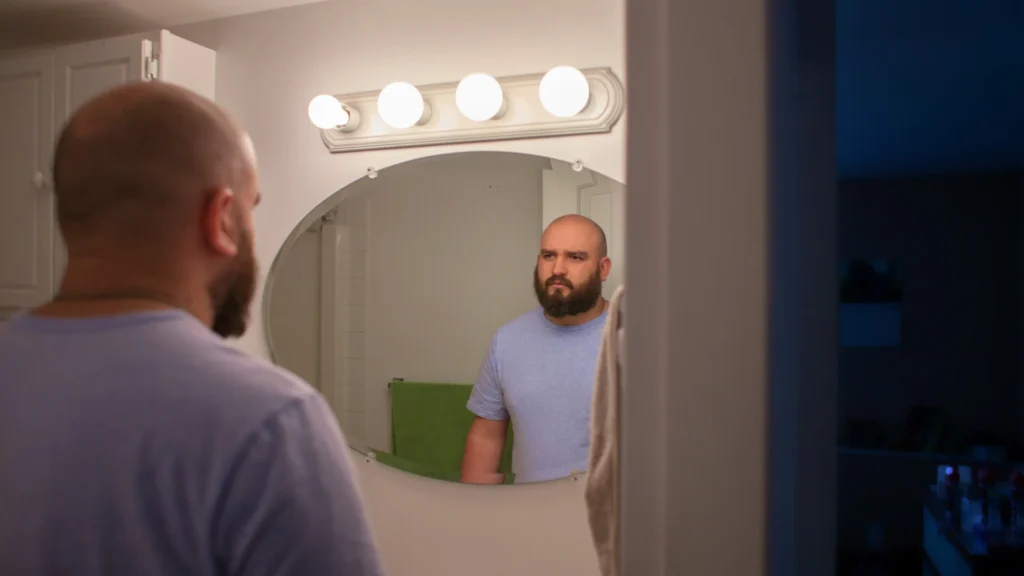Sexual health is a fundamental part of overall well-being, yet it is often overlooked or under discussed in many aspects of healthcare. The impact of sexual health on mental health is profound and often underestimated. There is an intricate connection between sexual health and mental well-being that can influence how individuals perceive themselves, interact with others, and experience overall life satisfaction. This link—referred to as the “sexual link”—shapes our mental and emotional states in ways that are both visible and invisible.
In this blog, we’ll explore the sexual link between health and mental well-being, providing an understanding of how sexual health can affect mental health, why this relationship matters, and how individuals can maintain a healthy balance in both areas. We will also discuss how mental health issues can affect sexual health and offer practical advice for individuals seeking to enhance their sexual and mental well-being.
Understanding the Sexual Link
Sexual health involves a range of physical, emotional, mental, and social aspects. According to the World Health Organization (WHO), sexual health is more than just the absence of disease or dysfunction; it is about the ability to have a fulfilling and safe sexual life, free from discrimination, violence, and fear. Mental health, on the other hand, refers to emotional, psychological, and social well-being, affecting how people think, feel, and behave.
The sexual link between health and mental well-being is not simply about the physical act of sex, but the overall emotional experience tied to sexuality. This can include feelings of intimacy, self-esteem, body image, relationship satisfaction, and the ability to communicate openly with a partner.
Both sexual health and mental health are deeply interconnected. Issues in one area often impact the other. Poor sexual health, such as experiencing difficulties with sexual function or feeling dissatisfaction in intimate relationships, can lead to feelings of depression, anxiety, and low self-esteem. Conversely, mental health struggles, such as depression, anxiety, or stress, can result in changes in sexual desire, performance, and satisfaction.
The Impact of Poor Sexual Health on Mental Health
One of the most significant ways poor sexual health can affect mental health is through self-esteem. Sexuality is an integral part of human identity, and when issues arise—whether they involve physical health problems like erectile dysfunction, sexual dysfunction, or emotional difficulties like feeling disconnected from a partner—it can severely impact one’s self-worth.

1. Feelings of Inadequacy and Low Self-Esteem
If a person is struggling with sexual health issues such as chronic pain during sex, sexual dysfunction, or an inability to enjoy intimacy, they may begin to feel inadequate or disconnected from their partners. Over time, this can erode self-esteem, leading to feelings of worthlessness or frustration. Individuals may become preoccupied with thoughts of their inadequacy, which can lead to further emotional distress.
2. Increased Anxiety and Depression
Sexual health problems can often trigger or exacerbate anxiety and depression. When a person feels unable to perform sexually or is dissatisfied with their sexual experiences, it can result in heightened levels of stress, anxiety, and sadness. The pressure to “perform” or meet certain sexual expectations—whether internal or external—can create feelings of overwhelming worry, leading to mental health concerns like anxiety or depression.
Mental Health’s Effect on Sexual Health
Mental health issues can also significantly affect sexual health. Conditions such as depression, anxiety, and stress can influence libido, sexual performance, and overall satisfaction with intimate relationships.
1. Low Libido and Desire
Depression and anxiety are two of the most common mental health conditions that can lead to a decrease in sexual desire. These mental health issues often result in feelings of fatigue, low energy, and disinterest in pleasurable activities—including sex. People experiencing mental health struggles may find it difficult to engage in sexual activity or may have less interest in intimacy with their partners.
2. Difficulty in Maintaining Intimacy
Mental health challenges can create barriers to intimacy between partners. Individuals suffering from conditions like anxiety, depression, or post-traumatic stress disorder (PTSD) may find it difficult to connect with others on a deep emotional or physical level. This disconnection can make it challenging to maintain healthy relationships, which in turn can further affect mental health.
For instance, anxiety may lead someone to overthink or ruminate about their relationships or sexual performance, preventing them from enjoying the moment. Similarly, depression can cause a loss of interest in sex and make emotional closeness with a partner seem unattainable.
3. Body Image Issues
Mental health issues can also manifest as body image concerns, which can affect sexual health. Individuals suffering from disorders like eating disorders or body dysmorphia may struggle with feelings of shame or discomfort about their physical appearance. These negative feelings about their bodies can reduce their desire for intimacy and may lead to avoidance of sexual activity altogether.
The Role of Communication in the Sexual Link
Effective communication is essential for maintaining both sexual and mental health. Whether it’s discussing sexual preferences, addressing concerns about intimacy, or talking openly about mental health struggles, healthy communication can strengthen relationships and promote well-being. In many cases, individuals may not feel comfortable discussing their sexual health or mental health concerns with their partners, which can create a sense of isolation and stress. -863

Practical Ways to Improve Both Sexual and Mental Health
Given the profound connection between sexual and mental health, it is essential to maintain a balance between the two. Here are some practical steps individuals can take to enhance both their sexual and mental well-being:
1. Seek Professional Help
If you’re struggling with sexual health or mental health issues, seeking professional guidance is crucial. Speaking to a healthcare provider, therapist, or counsellor can provide you with the support and strategies needed to address both aspects of well-being. Therapy, whether it’s individual therapy or couples therapy, can help you work through any issues related to intimacy or sexual dysfunction.
2. Prioritize Self-Care
Taking care of your overall health is a key aspect of improving sexual and mental health. This includes getting enough sleep, eating nutritious foods, exercising regularly, and practicing mindfulness or relaxation techniques. Self-care routines that reduce stress—such as meditation, yoga, or journaling—can positively impact both your mental and sexual well-being.
3. Foster Open Communication with Your Partner
Talking openly about sexual health and mental health issues with your partner is essential for maintaining intimacy and understanding. By having candid conversations, you can work together to address concerns and build a healthier relationship. This can also help reduce any anxiety or fear associated with sexual performance or mental health struggles.
4. Exercise and Physical Activity
Regular exercise is one of the most effective ways to improve both mental and sexual health. Physical activity helps reduce stress, boost mood, and improve self-esteem. Additionally, exercise can improve blood flow and circulation, which is beneficial for sexual health. Activities like walking, swimming, or even yoga can enhance both mental and physical well-being.
5. Work on Body Image and Self-Esteem
Improving self-esteem and body image is an important part of enhancing sexual health. If negative body image is affecting your sexual confidence, it may be helpful to engage in body-positive practices, such as self-compassion exercises or therapy focused on self-esteem. Learning to embrace and appreciate your body can improve both your mental well-being and your sexual experiences.

Nurturing Both Sexual and Mental Health
The sexual link between health and mental well-being is undeniably significant. Poor sexual health can contribute to a range of mental health challenges, while mental health struggles can interfere with sexual health. Recognising and addressing the connection between the two is essential for maintaining a fulfilling, balanced life. By prioritising self-care, seeking professional support, and fostering open communication with partners, individuals can improve both their sexual and mental health.
At the end of the day, sexual health and mental health are not separate entities but rather integral parts of our overall well-being. They influence and shape each other in ways that deserve attention and care. Whether you’re seeking to enhance your intimate relationships, address sexual health concerns, or improve your mental health, it’s important to understand the powerful connection between the two. Investing in your sexual and mental health is an investment in a happier, more fulfilling life.




